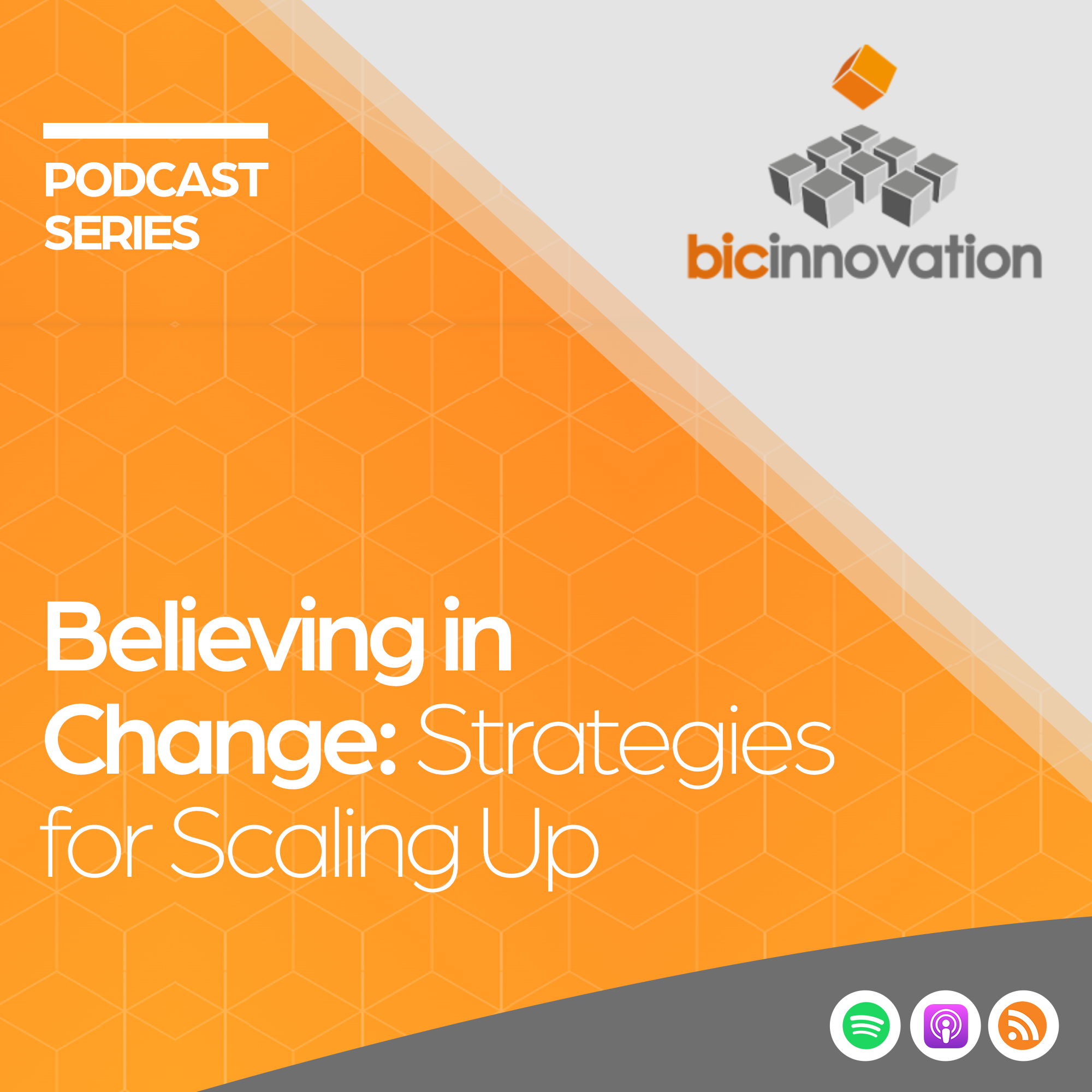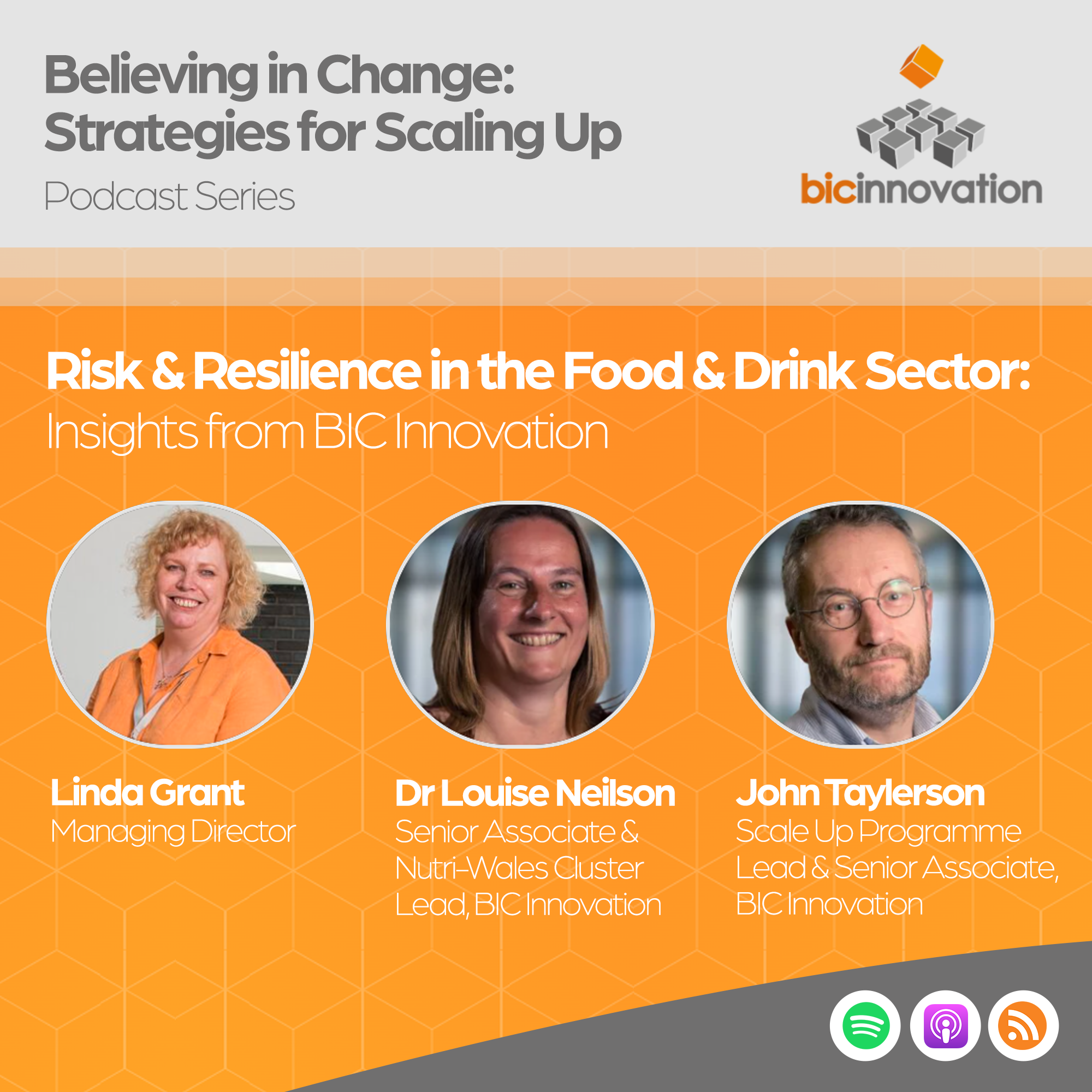
In food and drink manufacturing, the ability to manage supply chain risk is a central part of building resilience.
We often talk about resilience in broad terms, but much of it comes down to the practicalities of where you source from, how you plan production, and how well you understand the risks embedded in your systems.
At BIC Innovation, we see this every day as we work with Welsh businesses and those further afield that are navigating increasing complexity and pressure.
Consumer tastes can shift quickly, often driven by pricing, legislation or taxation. In some cases, those shifts are influenced by external factors such as tariffs or trade disruption. These kinds of changes can have a direct impact on where you source ingredients or packaging, and on how your business operates.
Trying to hedge against those risks by locking into big, long-term procurement deals can sometimes expose you to cost spikes or supply disruption. Instead, a more flexible approach – sourcing from multiple suppliers or spreading purchasing over time – can soften those cliff-edge impacts.
Avoiding a concentration of risk is key. Over time, the sector has tended to consolidate suppliers in pursuit of economies of scale. But that approach can create vulnerabilities. If one supplier has a problem, the knock-on effects can be significant. By contrast, working with a broader base of suppliers – including local ones – can increase agility and reduce exposure. It also improves your bargaining position.
In Wales, we grow certain crops and proteins particularly well. Oats and grass-fed livestock, for example, offer strong foundations for food production, and where possible, it makes sense to make more of what we use here rather than rely on distant imports.
Innovation doesn’t have to originate inside your business. We often encourage manufacturers to look to their supply chain for ideas. Ingredient suppliers, equipment providers and technical specialists can all bring innovation to the table. The important thing is staying connected to that ecosystem so you can pick up new ideas and put them to work in ways that benefit your product and your customer.
Just-in-time supply models, which were once standard practice, can now be too vulnerable. Any disruption can lead to delays or empty shelves. Instead, better planning tools can help businesses build a degree of flexibility without holding excessive stock. Enterprise resource planning (ERP) systems, for example, can support more accurate forecasting and efficient production schedules. That not only helps reduce waste, but it can also lower energy costs – something that matters more than ever.
Packaging also has a role to play. Using better barrier materials can extend shelf life, giving businesses more buffer in the supply chain. That makes premium products more viable and can help protect product quality during distribution. Small efficiencies like these, when combined, make a tangible difference.
Context is important when thinking about risk. Not every threat is equally likely or equally serious. By breaking down risks and focusing on those with the greatest potential impact, businesses can take manageable steps to improve resilience. Accreditation can support this process. Working towards best practice doesn’t just strengthen your processes – it can also unlock new markets. Increasingly, larger customers such as supermarkets expect suppliers to demonstrate resilience across areas like cybersecurity, carbon management and production consistency. They want confidence that a business can scale reliably and maintain standards.
Looking to the future, local sourcing will become more important. So too will the need for businesses to understand their supply chains in more depth and detail. Downstream customers will expect resilience to be built in. This could present opportunities for Welsh businesses, particularly where they can offer a reliable, local alternative to imported products. But it will also mean taking on more of the processing and manufacturing ourselves, rather than importing ready-made ingredients.
That may introduce additional costs, so planning and budgeting will need to become more sophisticated to keep businesses competitive. Resilience is not just about withstanding shocks – it's about being ready to take advantage of opportunities when they arise. For food and drink manufacturers, that means embedding supply chain thinking into every part of the business. It's not always easy, but it is increasingly essential.
John Taylerson talks about this and more in the BIC Innovation podcast episode Risk and Resilience in the Food & Drink Sector – Insights from BIC Innovation . Listen to the podcast here












